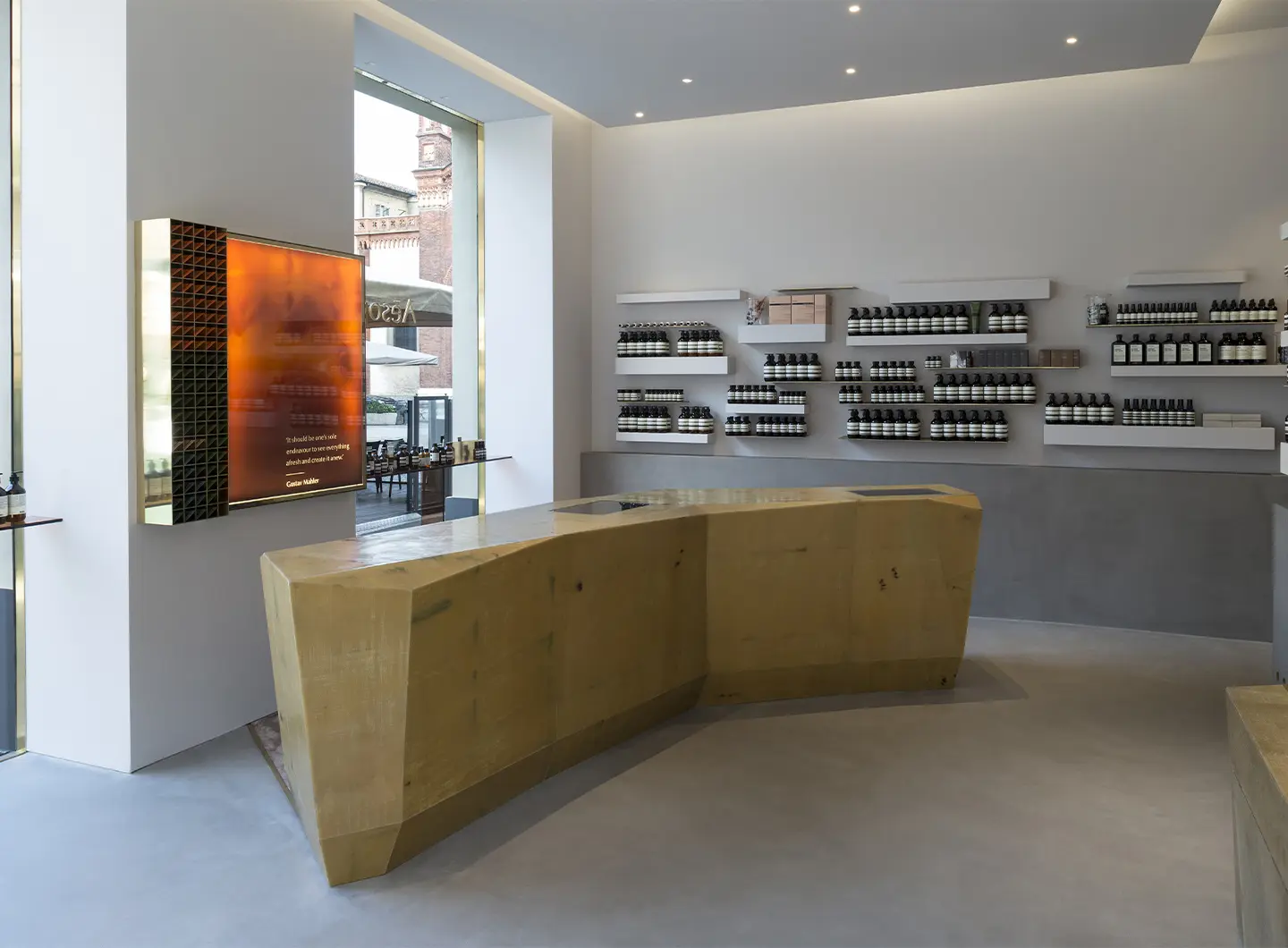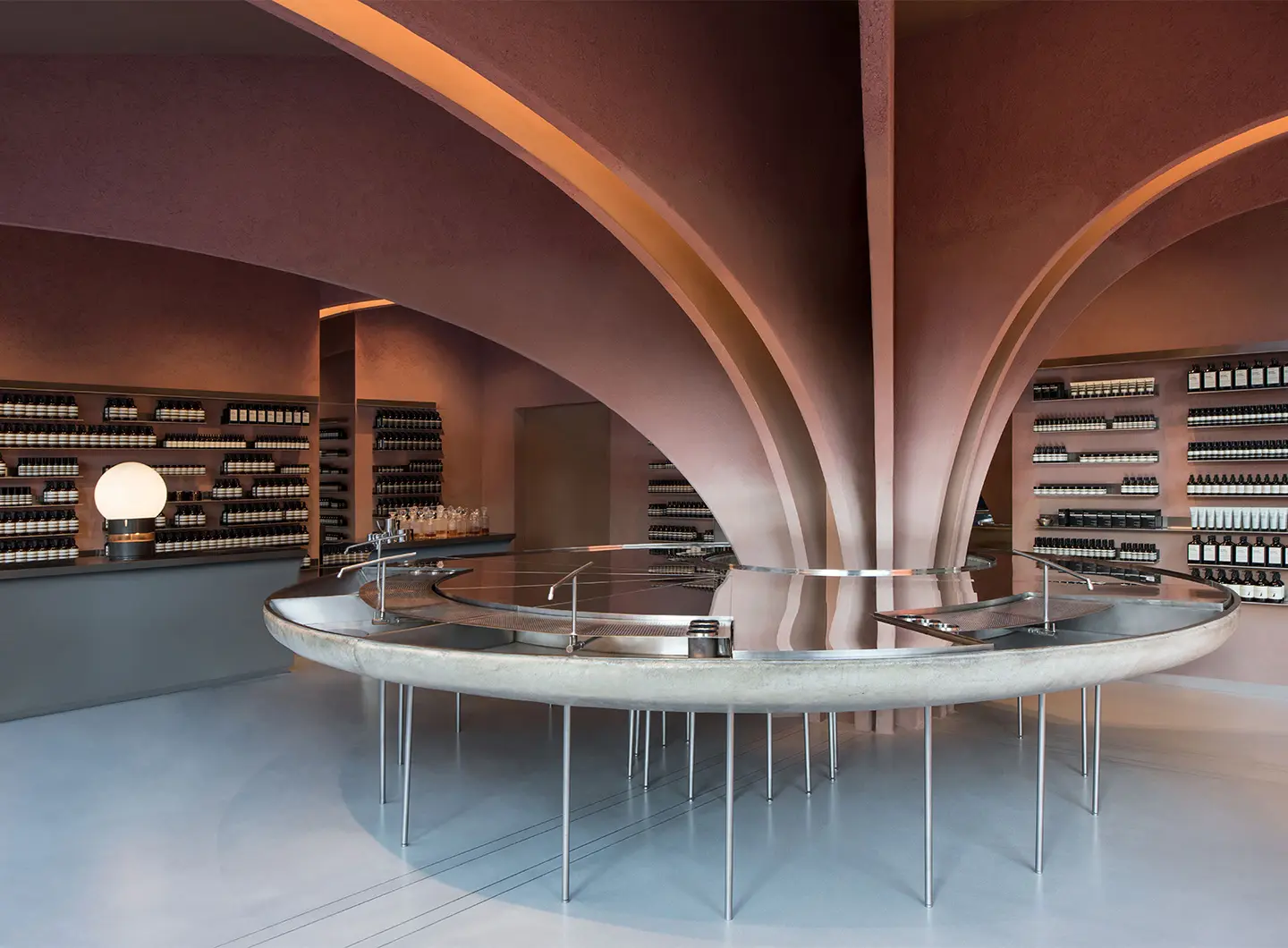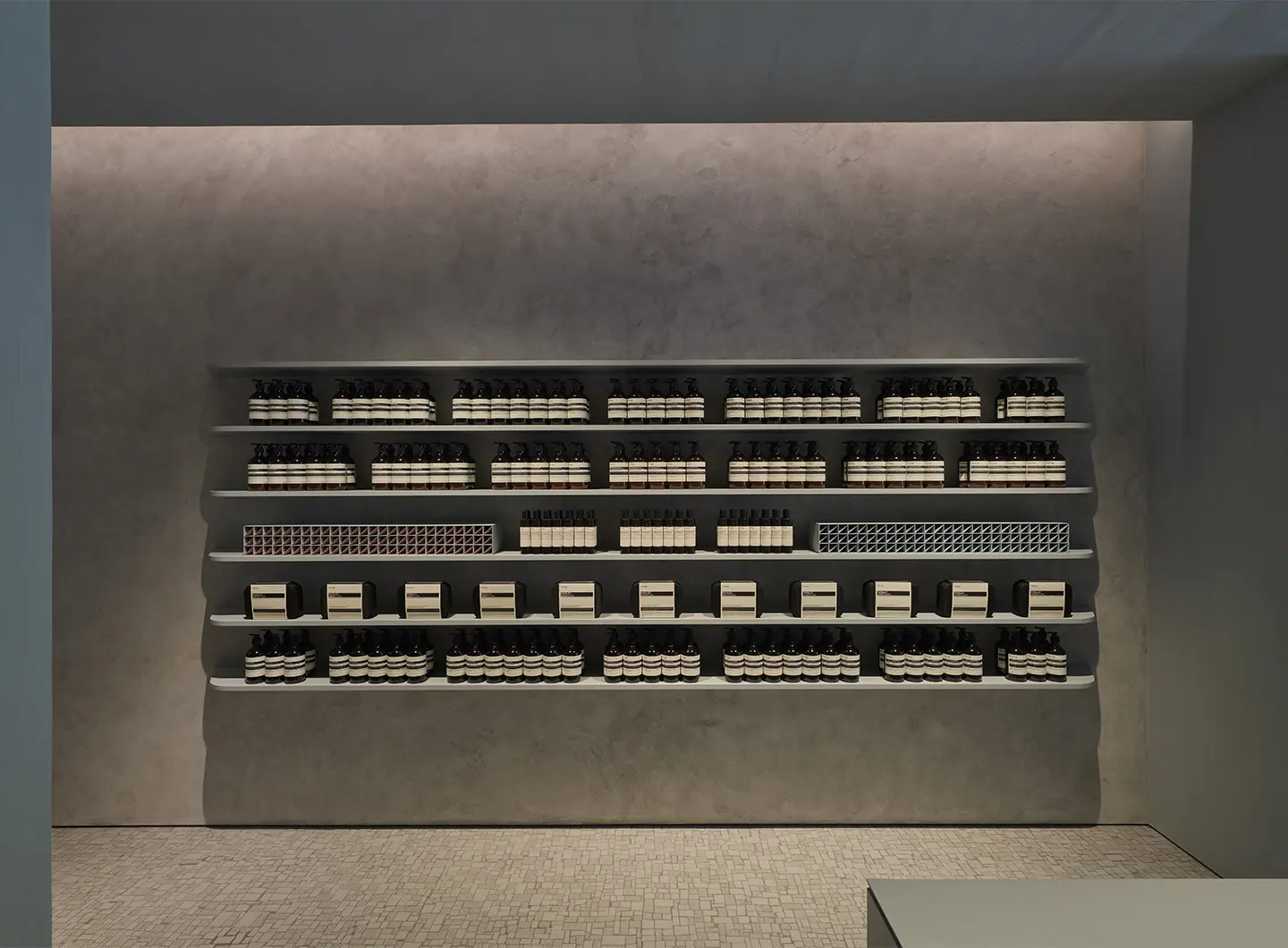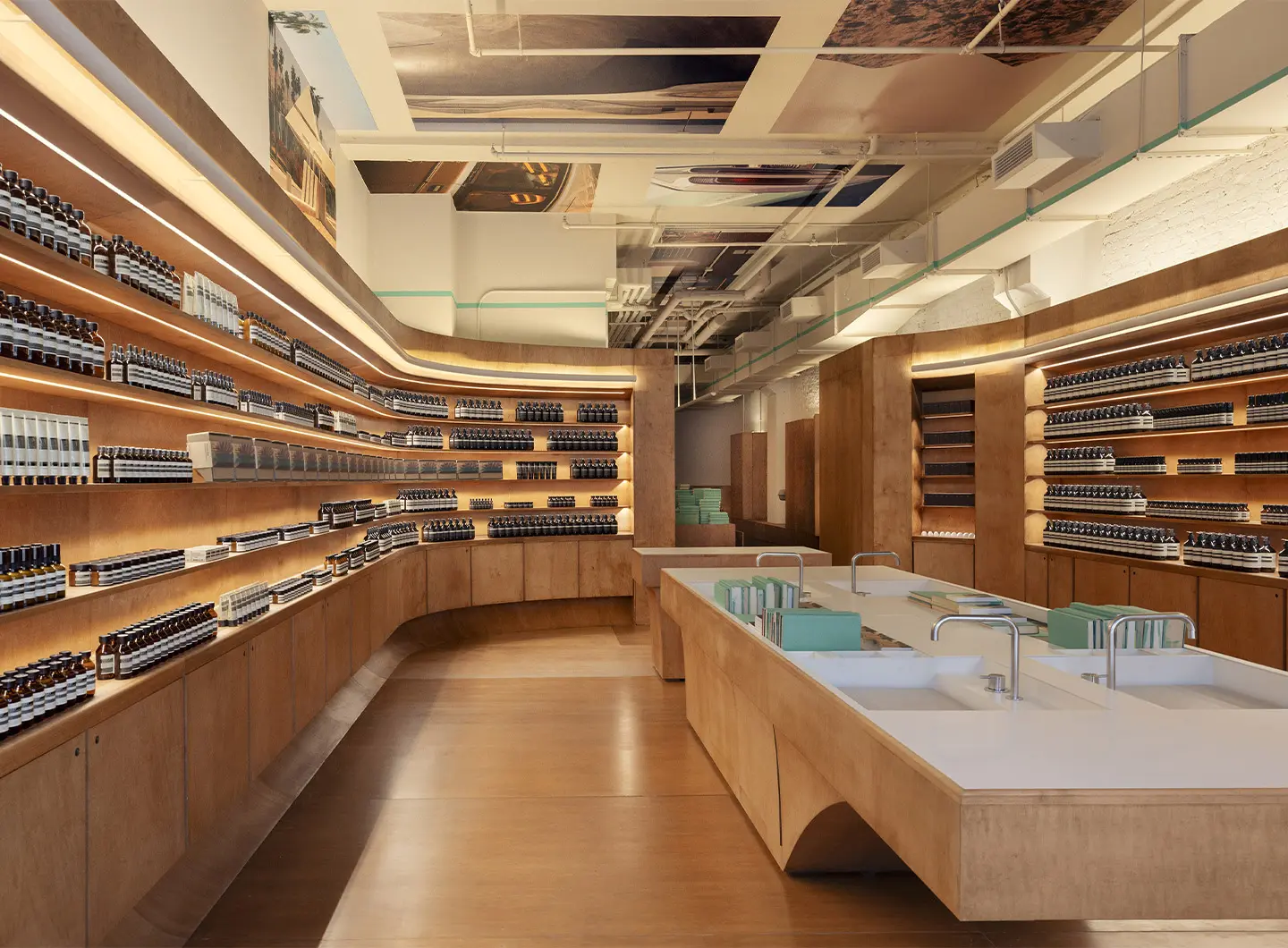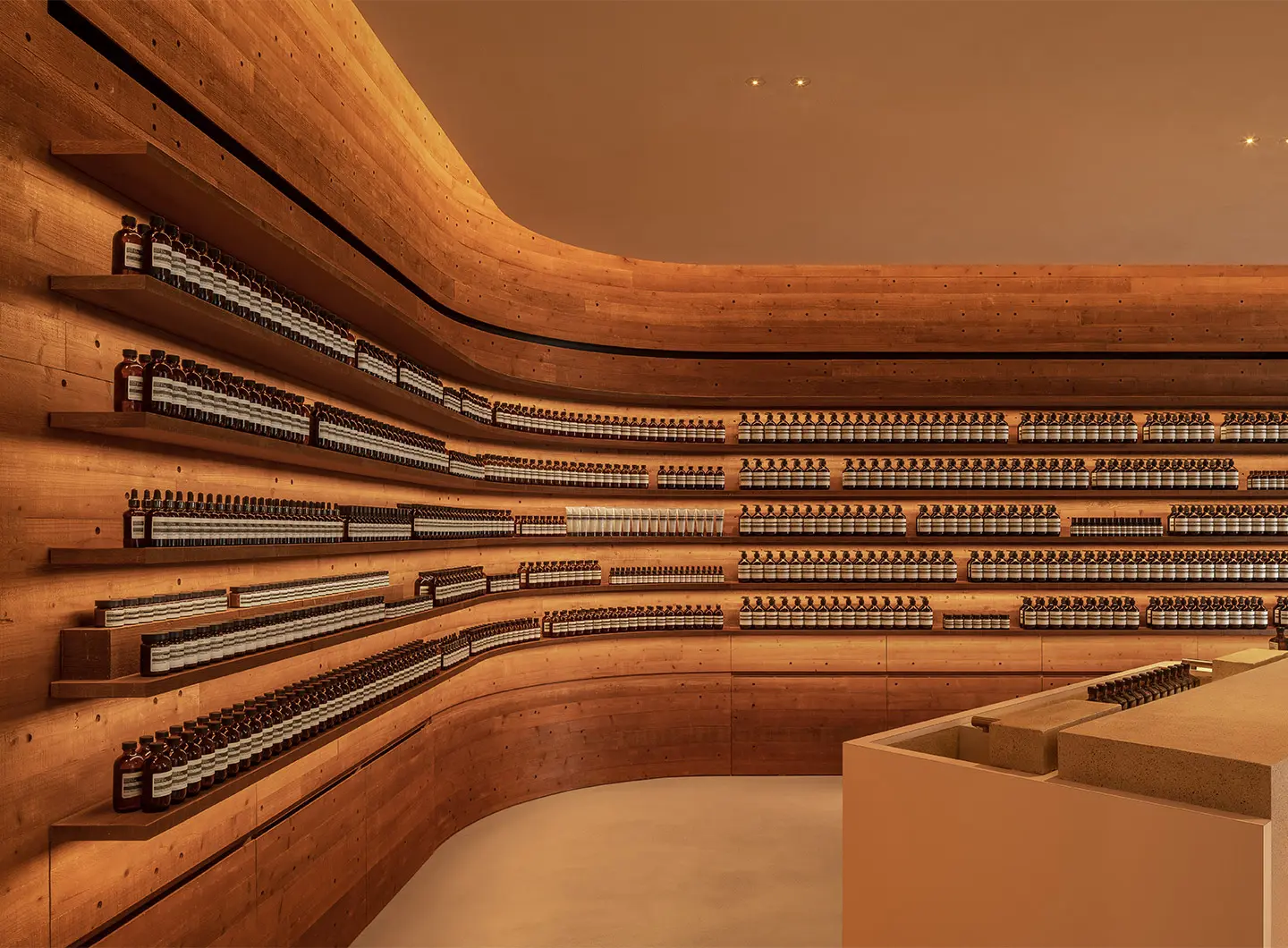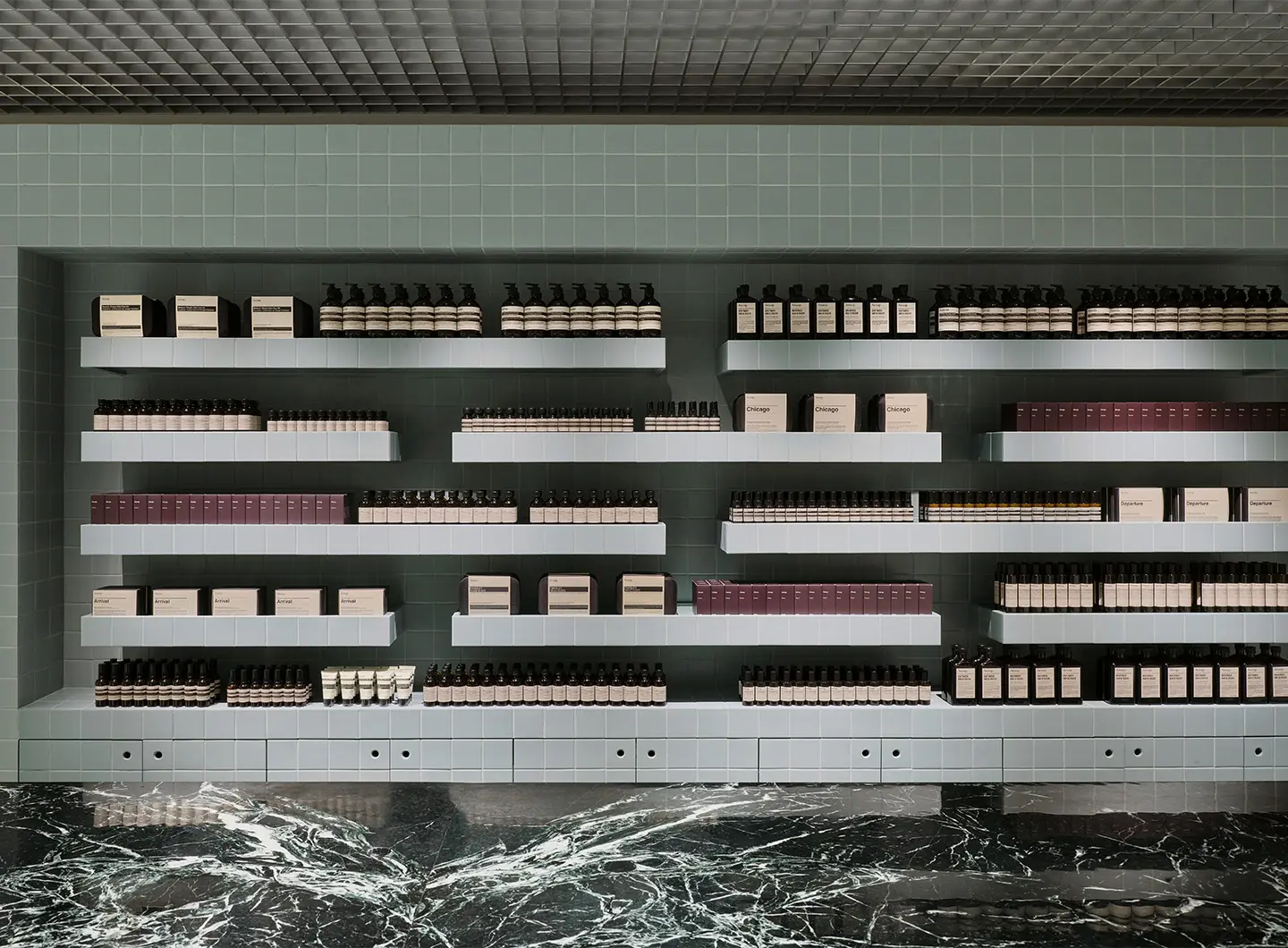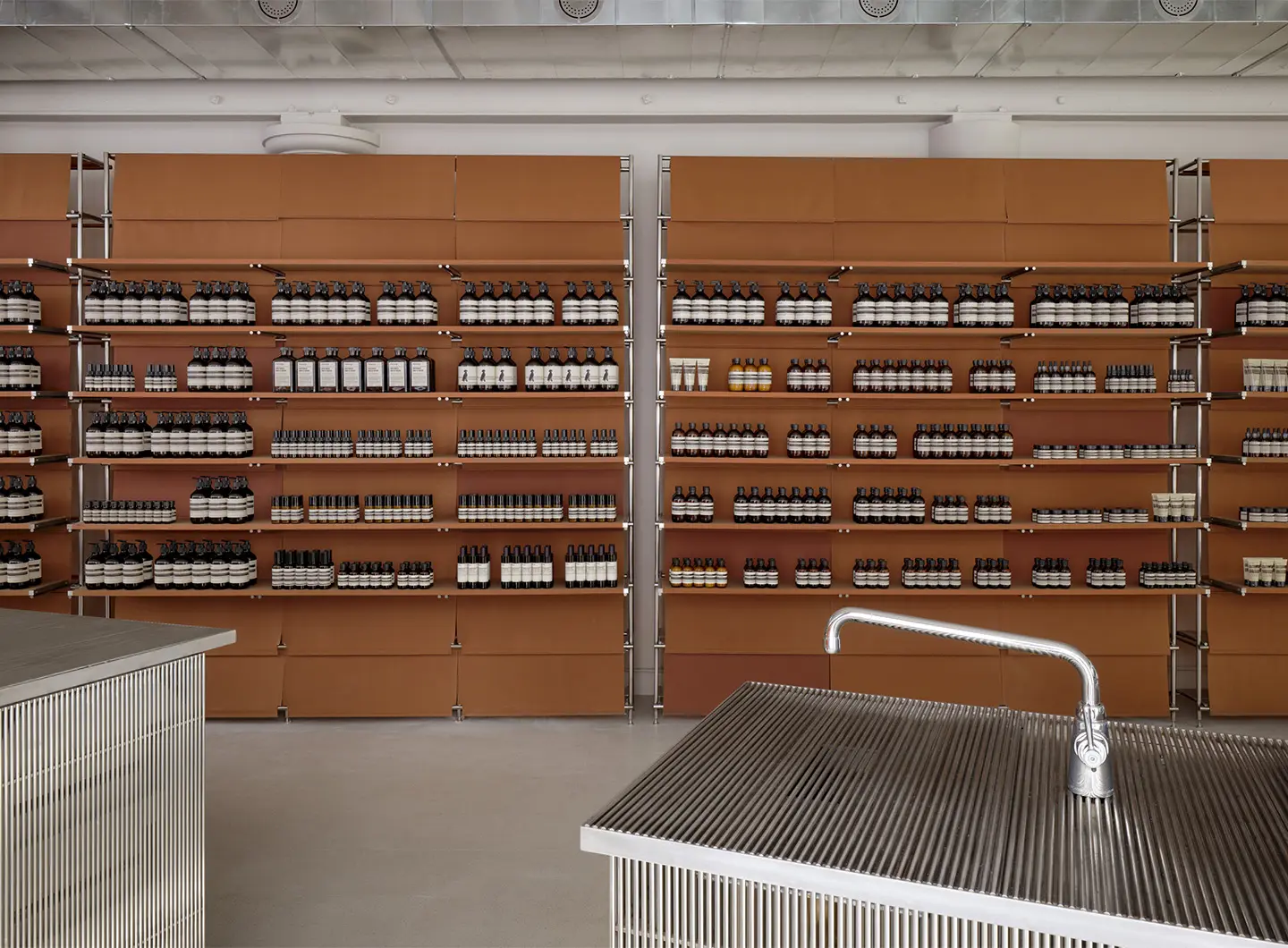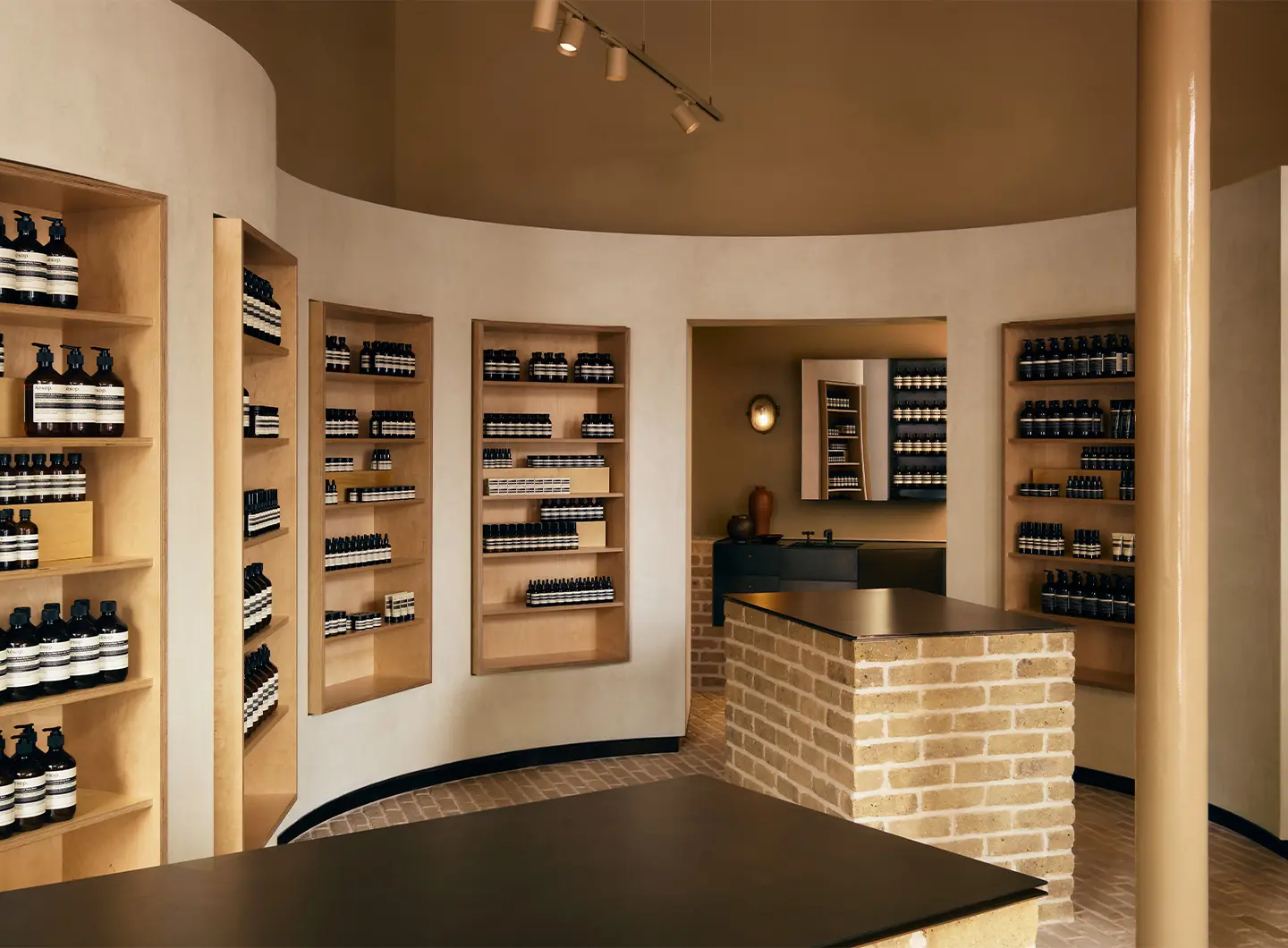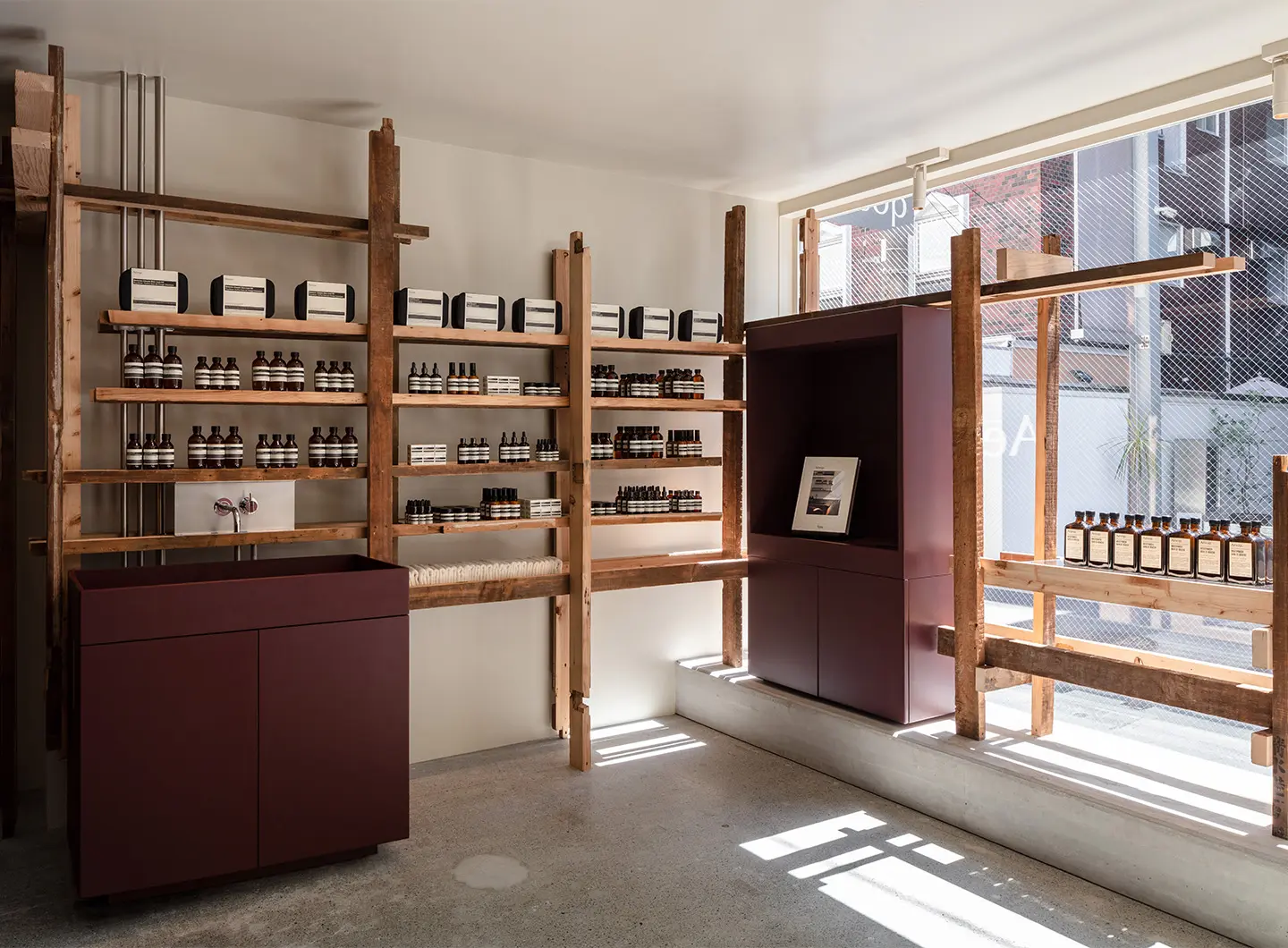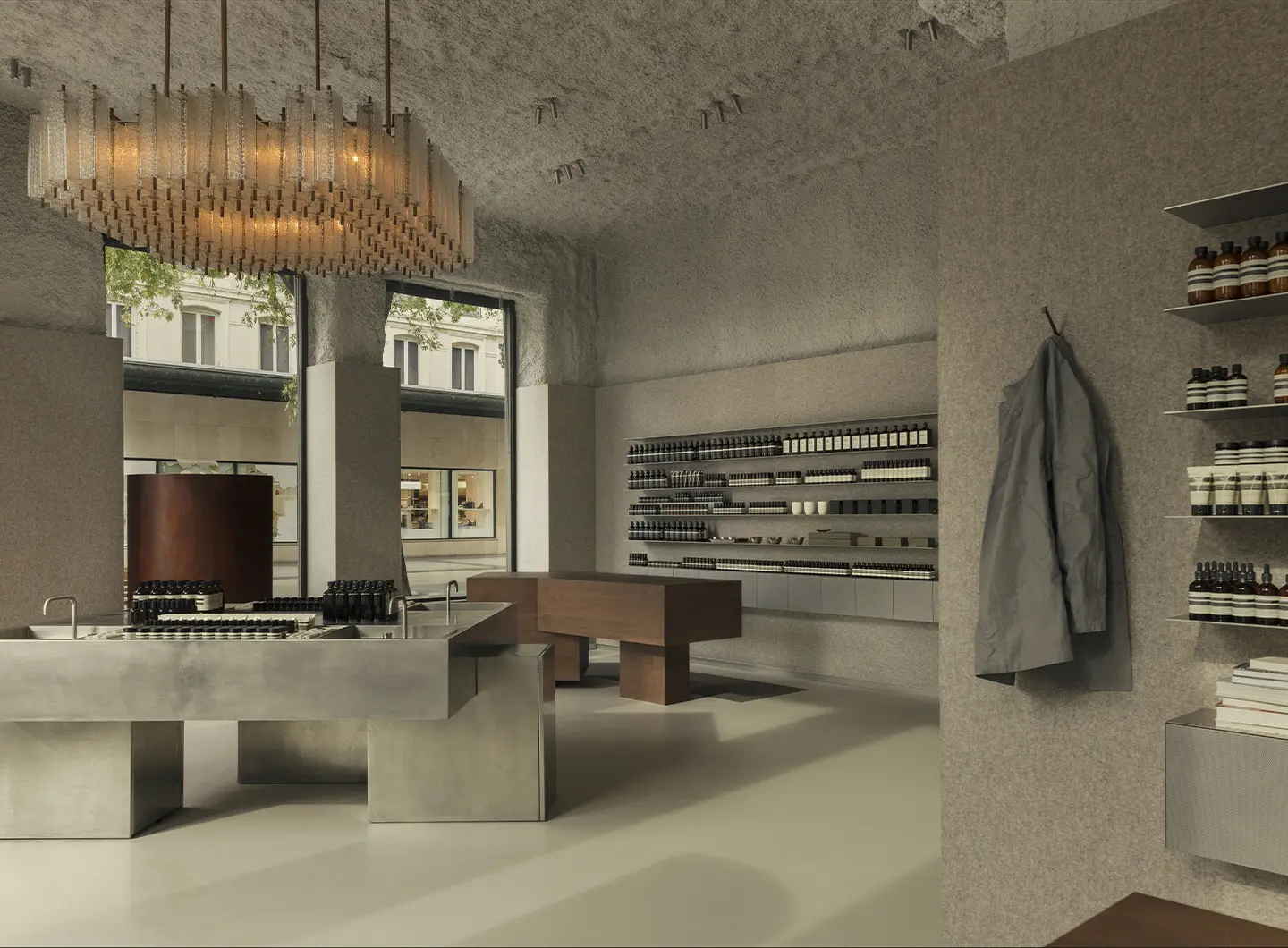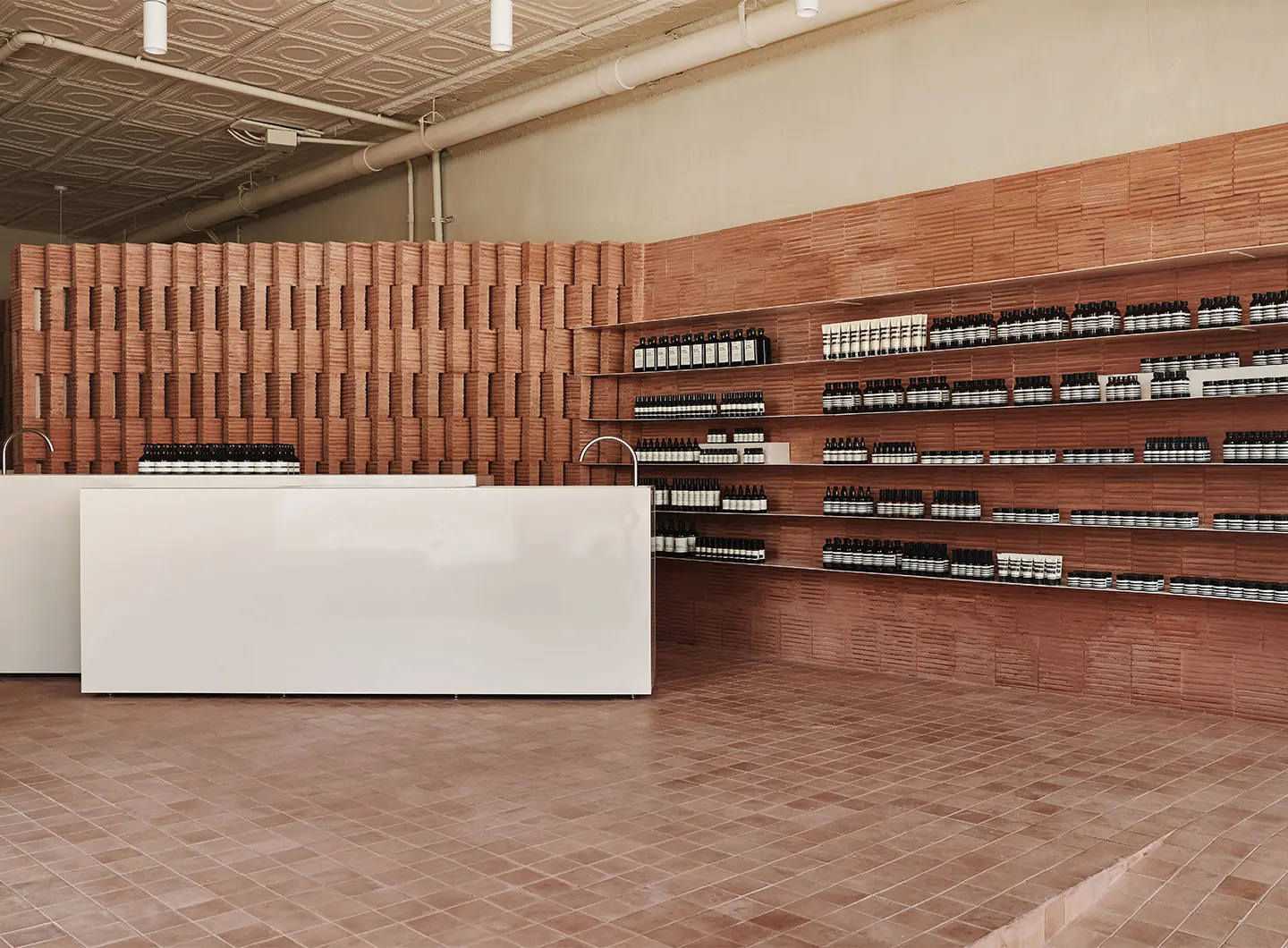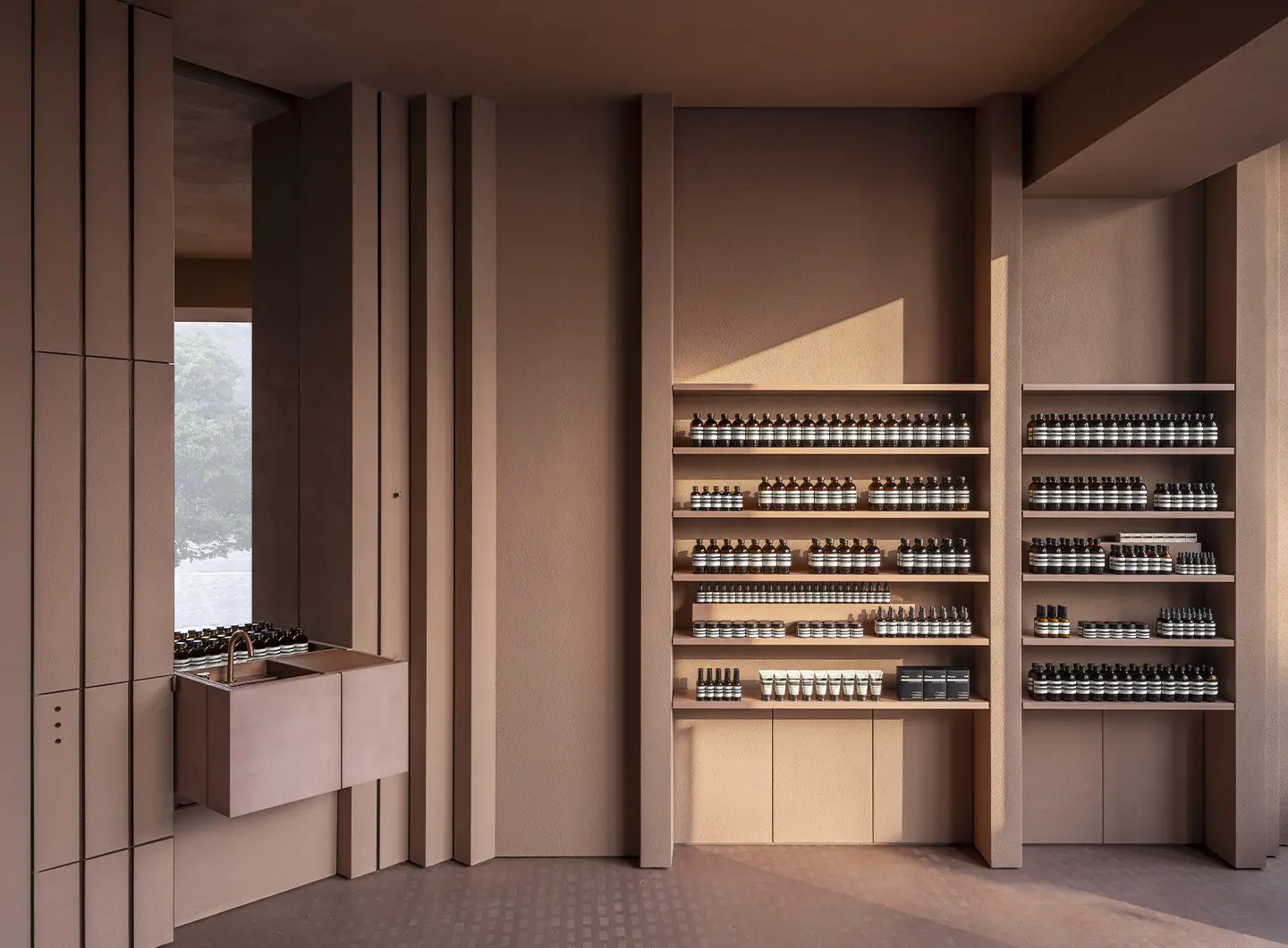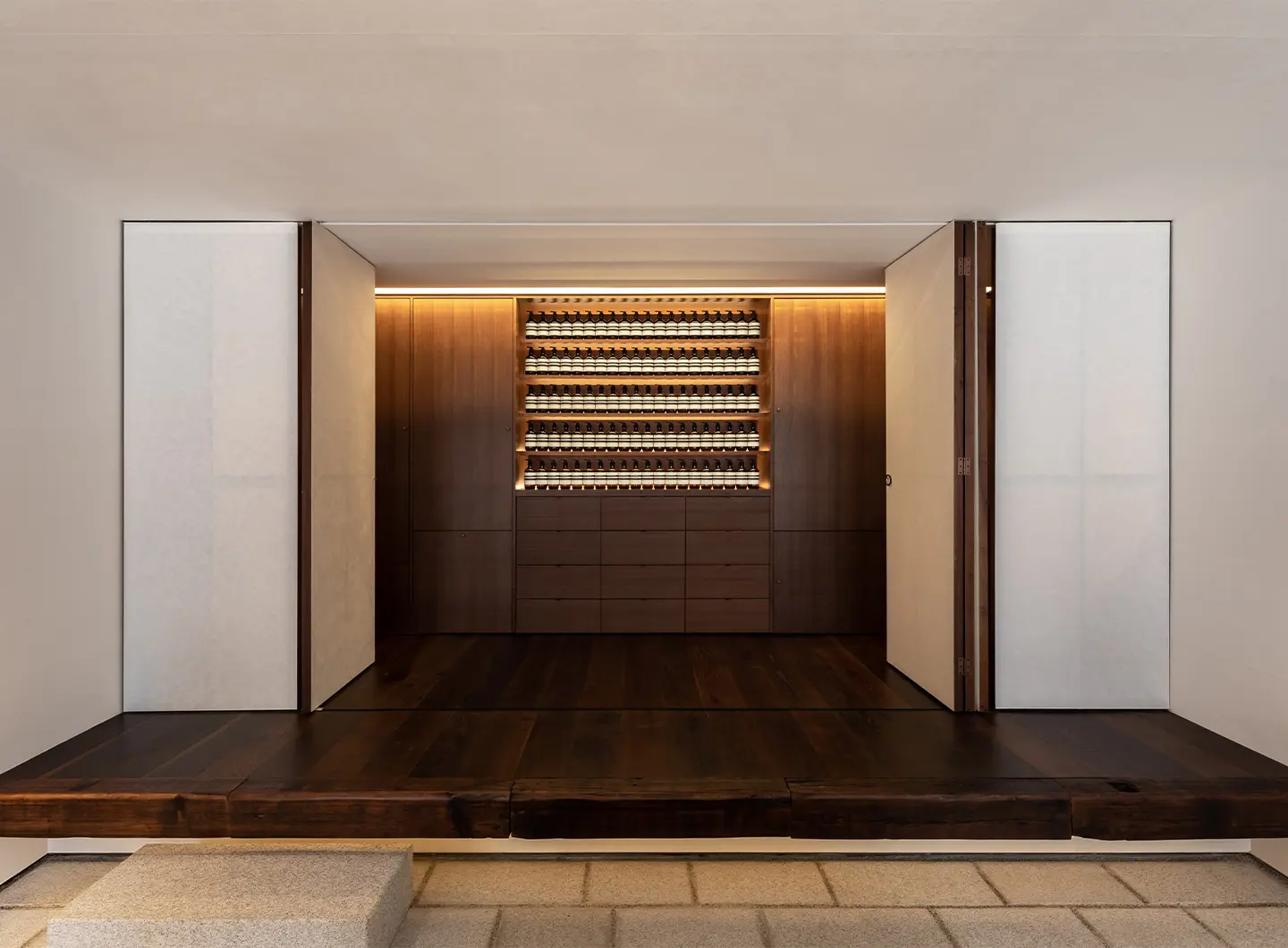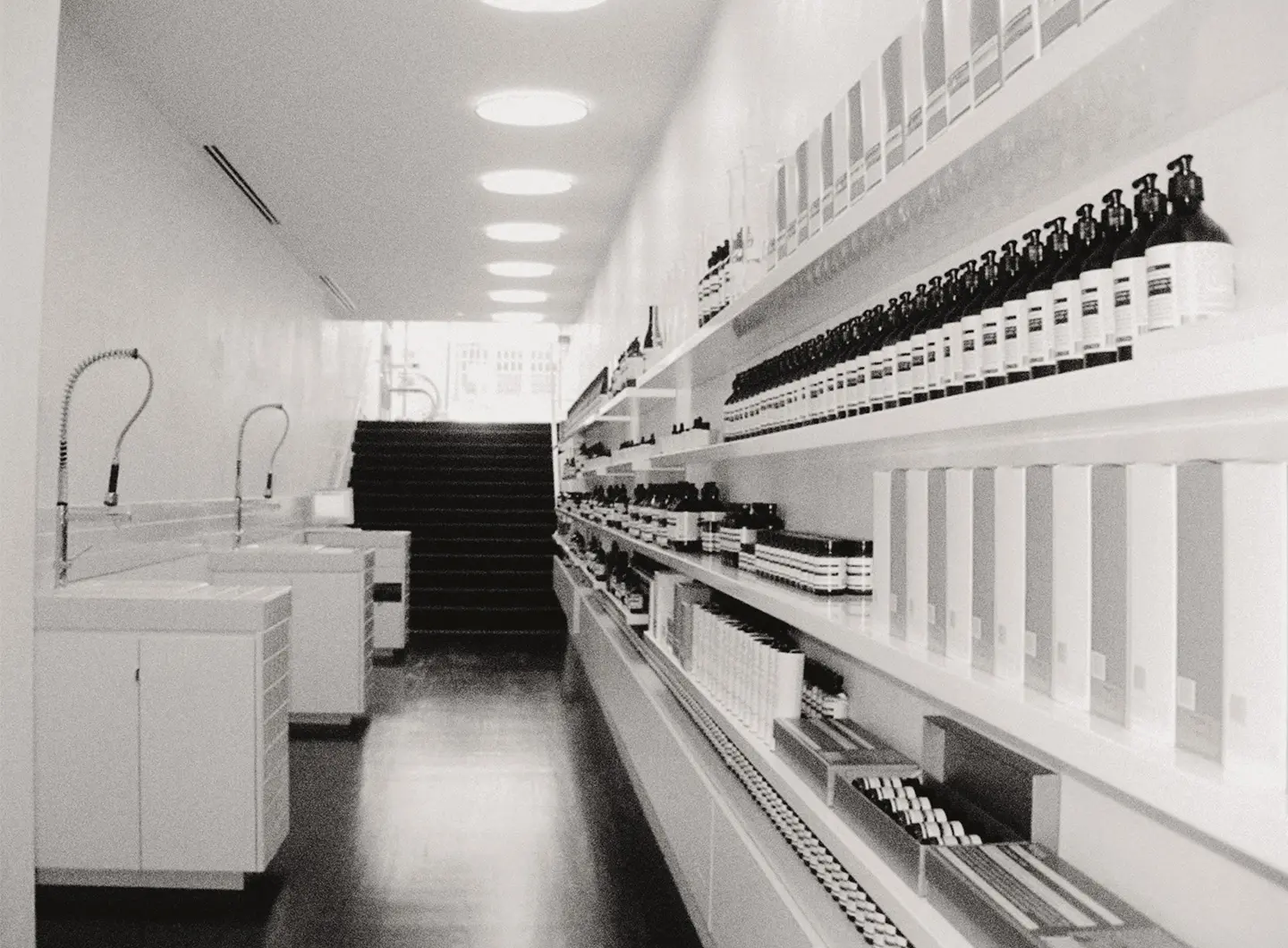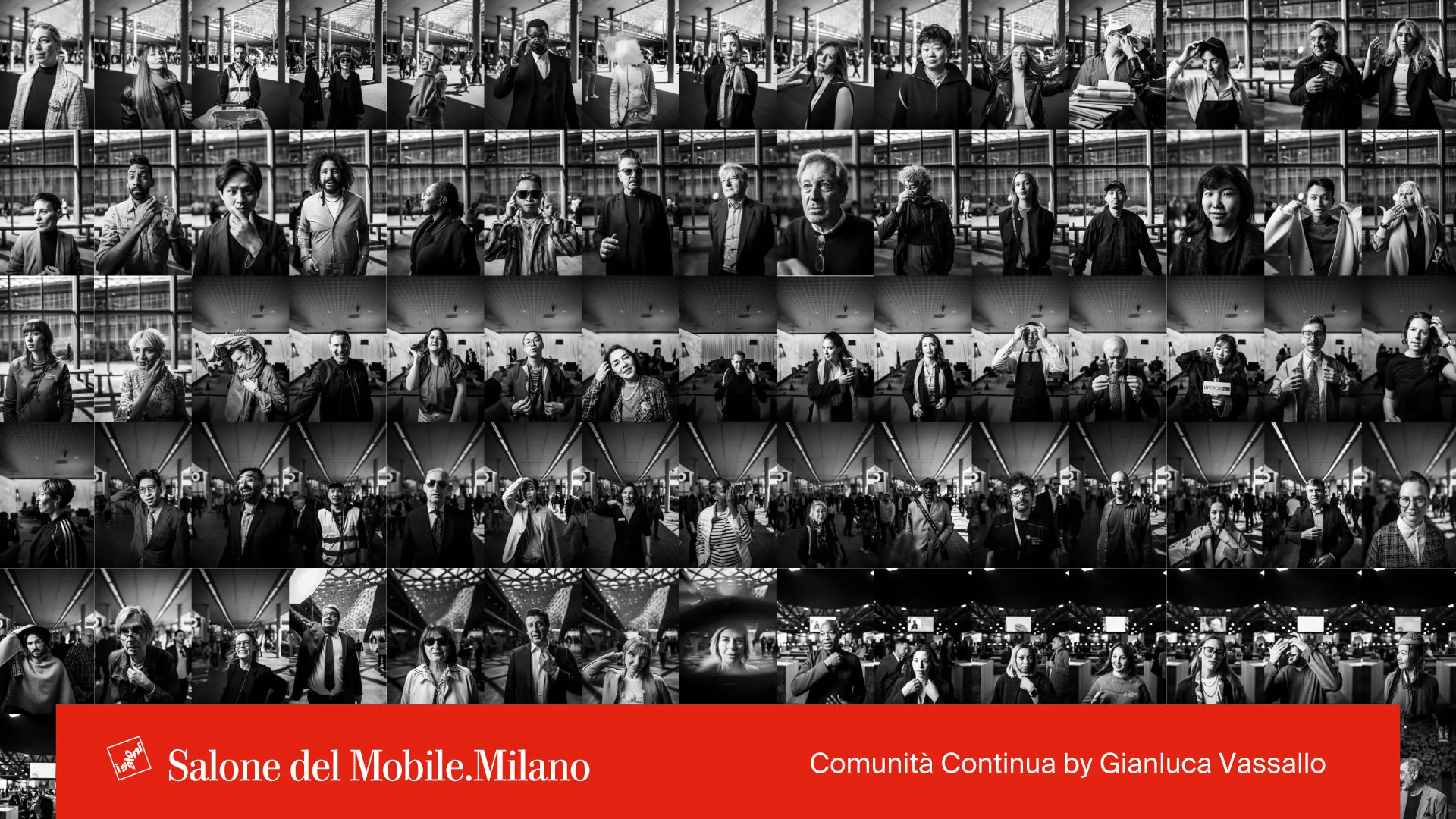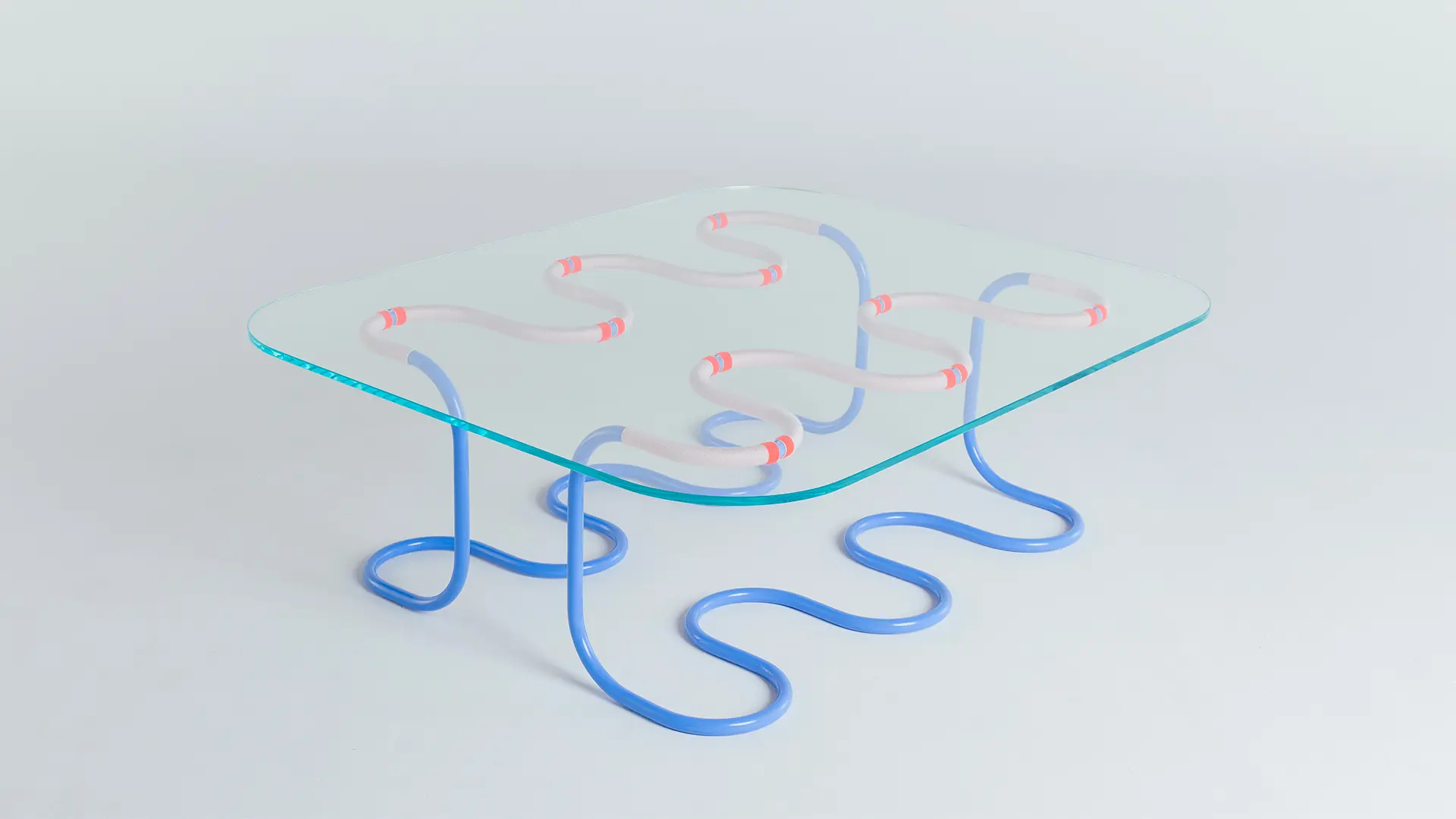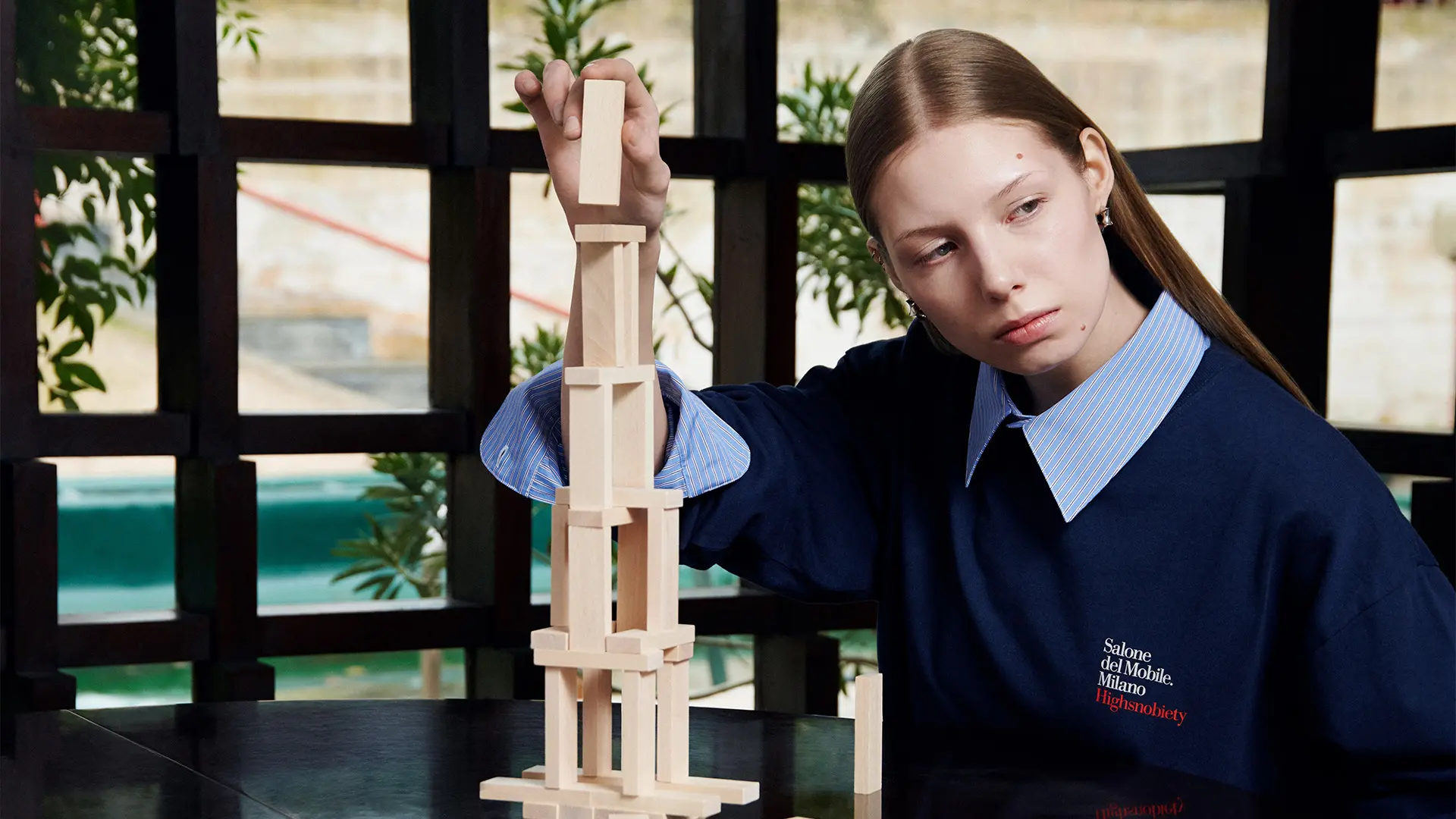Aesop on the importance of design
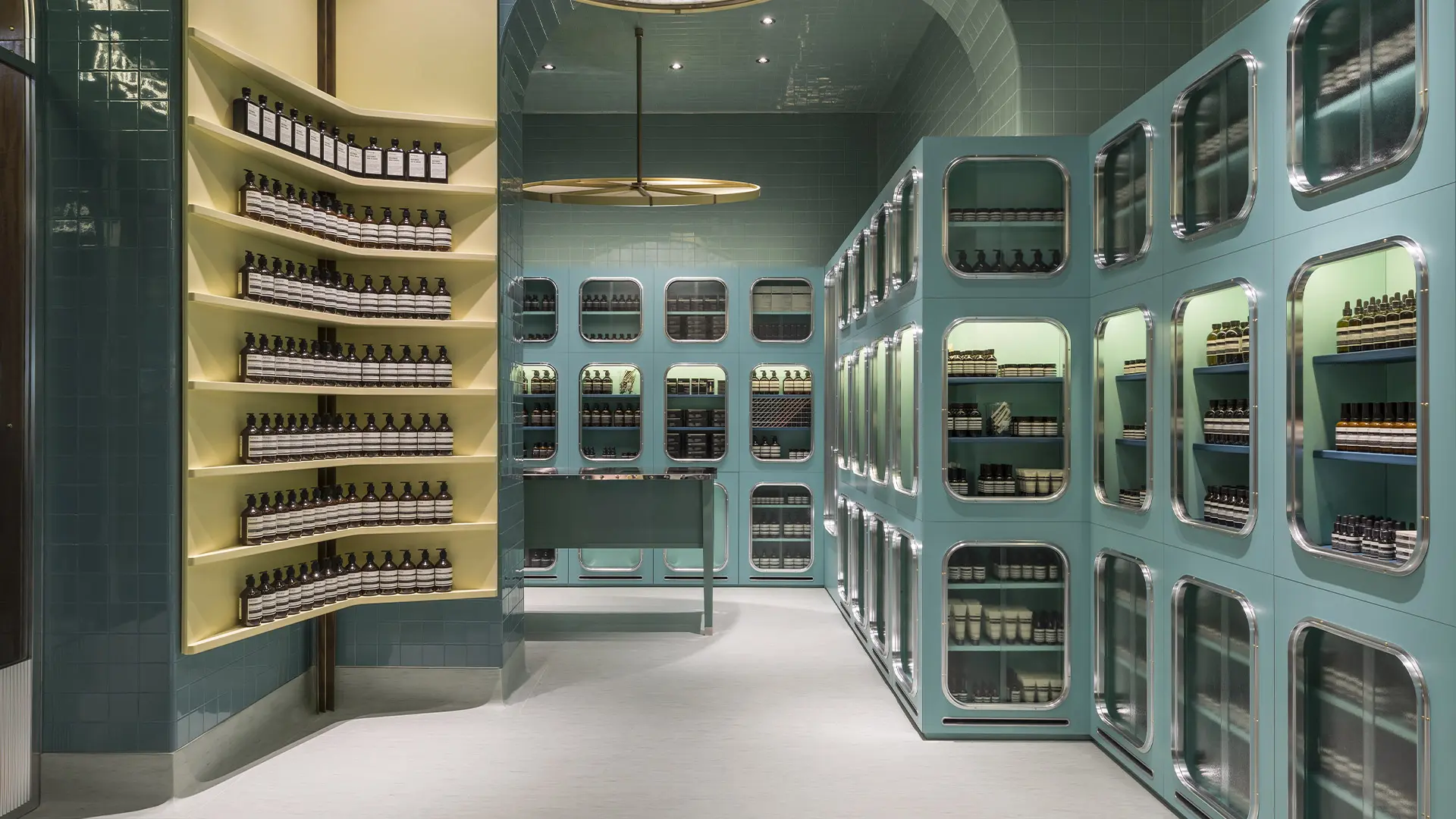
Store Aesop Corso Magenta, Milan
An interview with Marianne Lardilleux, Director, Global Retail Design of the renowned skin care brand, official partner of the April edition of Salone del Mobile.Milano
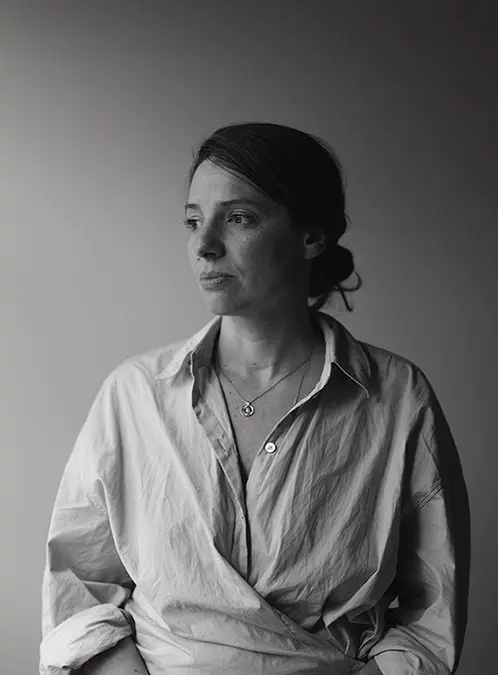
Marianne Lardilleux, Director, Global Retail Design di Aesop
As the title of our concept for this year’s Salone del Mobile states: Form Follows Formulation. To understand our wider approach to design and customer experience, you may simply look to the amber bottles and jars that line our shelves—there you will find a distinct absence of superfluity, a focus on efficacious ingredients and absolute clarity about the purpose of each product. Our design principles follow this approach, where every material, colour or object within our stores and offices is purposely selected—whether to respond to a store’s contextual surroundings or to facilitate an experience of our products—nothing appears by accident or is an embellishment.
This ethos has guided us for over 37 years and will remain for those to come, so in terms of innovation it is more a case of researching the key ingredients that tell the story of our brand and its products in a way that responds to the evolving needs of customers, and which minimises our effect on the environment.
As the business grows, our approach to design continues to evolve, along with our ethical and sustainable sourcing of materials. We aim to become net zero and fully circular by 2050 and actively keep track of our environmental impacts both within the organisation and across our value chain.
For over three decades we have adhered to a fiercely independent approach to skin care, marked by an unwavering commitment to quality—aiming to create products of premium efficacy and sensory pleasure through solid science, delivered in uncomplicated packaging and with a touch of humour.
Our company has evolved from launching one store in St Kilda, Melbourne, to having a retail presence in over 25 countries around the world. We began with just four products in 1987 and now the Aesop range comprises more than 100 formulations, with skin care accounting for almost half of those. And having begun our business with just a few passionate individuals, we now employ more than 2000 people globally.
We found our voice by operating outside industry norms, and have maintained a commitment to customer service of the highest calibre, distinguished by honesty, warm hospitality and an extensive body of knowledge—hosting each customer much as we would a guest in our own homes. We anticipate long-term relationships with them, in which we will continue to meet their needs as their skin changes over time. It is our heartfelt belief that the experience of being a customer can and should be so much more than a commercial exchange.
We take great pleasure in collaborating with external architects. The beauty is that each designer can present their own interpretation of the brand and of the location, and then transmit this sometimes rather personal vision to our visitors and staff who, in turn, have their own subjective experience of the space.
We do not want to constrain architects to create just another store, and see these projects as architectural endeavours in their own right. For example, giving Dimore the freedom to communicate their vision of Milan in our Corso Magenta store was an enriching experience—the result is a whimsical essay on materials typically employed in butlers’ pantries of 1930s Italian villas and a contemporary version of the small neighbourhood bottegas still common in that area.
The architects we engage with also bring their own savoir faire to the projects. In her work on Aesop Park Slope, Frida Escobedo introduced the idea of using hand-made adobe bricks in tessellating diagonal rows in order to draw connections and contrasts between her home—Mexico City—and the store’s site in Brooklyn, where the angled brick façades of brownstone residences create rhythmic patterns. Frida connected us with her former student, Patricia Medivil, who was making these exquisite bricks from Oaxacan red earth that spoke perfectly to the hues of Brooklyn’s brownstones. We delight in these kinds of affinities, and the ever-expanding network of artisans who we’ve been linked to. We hope we also provide a platform for emerging practitioners to experiment and gain some visibility through our stores.
The process of building relationships with our architects is organic and evolves over time through mutual respect. Connections happen in myriad ways, but we often seek out architects after seeing work they have done, or after discovering a compelling reference. We present our objectives and allow the architect to interpret this with original concepts, while providing guidance on the operational details necessary to make each space functional and successful.
The story of our collaboration with Nicolas Schuybroek, who designed one of our installations for Salone, is indicative of the serendipity and patience that is often at play. We had admired his work for quite a while and then he contacted us, completely unsolicited, a few years ago. We invited him to Paris to share lunch and to visit some of our stores. We wanted Nicolas to experience the nuances of Aesop, to deconstruct pre-conceived ideas about us so as to begin a potential collaboration. We had no particular project in mind, but when the site at Lyon Place de la République became available, with sufficient space and height for him to express his clean and thoughtful architecture, we knew it was a match.
A creative sensibility underpins all that we do—not only our collaborations with artists, artisans and architects, but also our approach to hosting and the formulation of our products. We believe that well-considered design improves lives, and implement this ethos in every aspect of the company, from product packaging to interior architecture.
Salone del Mobile is a major event for design, art and architecture. It doesn’t matter whether you are a well-established artist or an emerging talent—the city transforms into a stage for everyone to express their creativity and ideas. For years, Aesop has responded to Salone in small installations and events at our Milan stores, but we had never been formally involved until now. We are honoured, but it also feels quite effortless—innovative and authentic design is in our DNA.
Our installations and events will intrigue attendees of Salone, be it within the soap structure created by Nicolas Schuybroek and inspired by the Arte Povera movement, at a serendipitous encounter with our wandering Aromatoria—laboratory-like apparatuses that seduce and enliven the senses—or listening to our panel discussion “Form follows formulation”, led by design curator and author Maria Cristina Didero.


